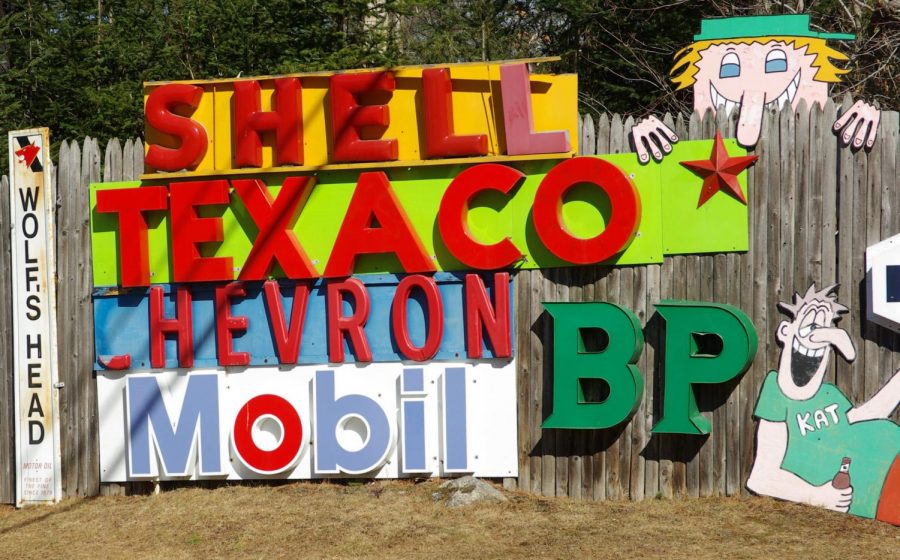As oil prices diminish, concerns over oil production increase
Gas station signs
April 21, 2020
Across the country gas prices are plummeting as the coronavirus pandemic continues to keep consumers in self-isolation, which has caused a dramatic decrease in the demand for gasoline.
The national average gas price Friday was $1.82, down 6 cents from a week ago, and $1.01 less a gallon when compared to this time last year, according to USA Today.
On Saturday the national average dropped to $1.78 according to GasBuddy, a fuel-savings app. There are 13 states with gas prices under $1 per gallon: Arkansas, Colorado, Iowa, Kansas, Kentucky, Michigan, Mississippi, Missouri, New York, Ohio, Oklahoma, Virginia and Wisconsin.
According to an article written by Vice, there are a few problems that have caused the price to plummet. Firstly, no one wants to buy oil. Also, there is nowhere to put the oil (if purchased). Lastly, May’s future contracts are set to execute at 2:30 p.m. Eastern time today, which means that oil speculators who have no infrastructure or capacity to handle tens of thousands of gallons of oil have only a few hours to figure out what they’re going to do with the oil contracts that they bought in the past.
Normally selling a contract isn’t a problem, as Vice article explains, because America uses a lot of oil and that means there are a lot of oil buyers. With everyone flying and driving less, the demand for gasoline, petroleum products and other refined oil products has plunged.
The problem is that production has not slowed down and so the reason why oil is so cheap right now is not because it’s worthless, but because there is too much oil right now and nowhere to store it.
Storing oil is a daunting task because there are a lot of regulations regarding where you can store oil and unused oil is not going to be burned or destroyed because that would be remarkably bad for the industry according to Alex Gilbert who studies energy at The Payne Institute for Public Policy at the Colorado School of Mines. Instead, unused crude will probably sit in shipping tanks and pipelines on our oceans and underground, which could result a whole lot of problems.
It seems that just by making less oil it could prevent pipelines from getting overflowed but it would have to be turned off at the tap according to Gilbert. “People have to cut supply.”
Stopping oil production isn’t easy, Gilbert contends.
“Demand is completely collapsing but you cant turn off oil very easily. It has pressure, and so you essentially uncap the cork and it just flows out. To re-cap it, you have to damage the well, which means yours losing a lot of money.”
This means that oil drillers all over the world need to wait for demand to increase, or competitors to cut their supply first. Reportedly, they would rather sell their oil for close to nothing than stop pumping crude, because that could end up costing more than taking the short term loss.
Traders and economists consider oil to be the foundation of the economy and look at oil prices to determine economic stability. As such, oil prices also affect the health of other commodities, travel, transportation and shipping infrastructure.
The fact that oil is trading for negative money seems bad for capitalism.


